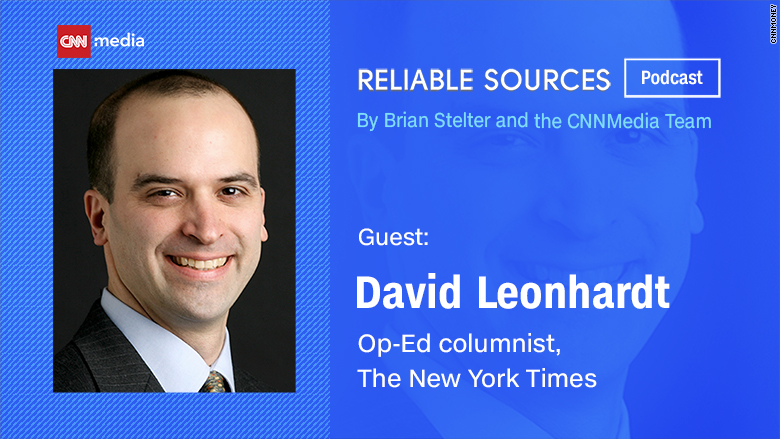
President Trump's ferocious attacks against the press are not just about his beef with the media. They're also about his need to control information.
Trump states data that isn't true. He tells his own version of events. And he goes to great lengths to discredit the investigation led by special counsel Robert Mueller, whose findings could prove damning to Trump.
"He essentially is on a campaign against anyone who represents an independent source of information," said David Leonhardt, Op-Ed columnist at the New York Times. "Trump essentially wants a monopoly on information, and he wants to attack anyone who threatens that monopoly."
Leonhardt, who is also the associate editorial page editor at the paper, reflected on Trump's base, polarization in the media, and the president's meeting with New York Times publisher A.G. Sulzberger on this week's Reliable Sources podcast.
Listen to the whole podcast here:
Trump is not the mastermind behind this campaign against independent information, Leonhardt said. The president may be the number one player, but he has help from an already-divided public.
"We now live in a country that is deeply, deeply polarized, in which... many people don't believe anything unless it comes from a voice they already trust," Leonhardt said.
There are some Trump supporters who don't actually believe what the president says, but will support him anyway and don't care if he's lying, Leonhardt added. And there are some who do not think much about the substance of Trump's remarks as long as he shows himself to be aligned with them.
"We're not going to agree on everything," Leonhardt told CNN's Brian Stelter. "There are always going to be factual disputes and factual debates. There have been since the founding of the country. But if we have no shared sense of information, no shared set of information, it's extremely damaging to democracy."
Leonhardt pointed to partisan media, especially Fox News and talk radio, as sources that prop up Trump. These outlets deride what they refer to as the "mainstream media" or the "liberal media."
"I think the charges that most journalists at mainstream news organizations... lean left, I think that's an absolutely fair charge," Leonhardt said. "But that is very different from saying that the mainstream media doesn't actually try to report the facts."
When it comes to the future of the New York Times, Leonhardt said the paper is "doing really, really quite well." The paper still faces challenges, he said, but the transition for the Times isn't close to over.
"We need to keep providing journalism that our readers think is worth paying for," he said. "That is where the future of our business lies."


